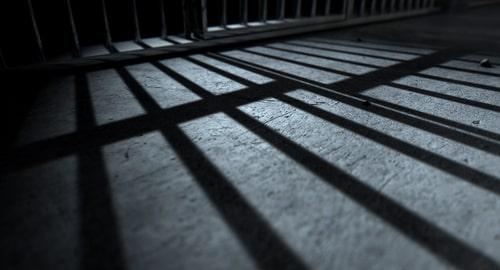When Can a Person Be Convicted of Murder in Illinois?
 Few criminal offenses are as serious as murder. Someone who is accused of intentionally killing someone else will usually be investigated by law enforcement and prosecuted on homicide charges. Because of the serious nature of this offense, a conviction is likely to lead to severe penalties, including the possibility of life in prison. However, the specific charges related to murder can vary depending on the situation, so it is important to understand the issues that can play a role in these cases. Regardless of the nature of homicide charges, it is crucial for a defendant to be represented by a criminal defense attorney who has experience representing clients who have been charged with violent crimes.
Few criminal offenses are as serious as murder. Someone who is accused of intentionally killing someone else will usually be investigated by law enforcement and prosecuted on homicide charges. Because of the serious nature of this offense, a conviction is likely to lead to severe penalties, including the possibility of life in prison. However, the specific charges related to murder can vary depending on the situation, so it is important to understand the issues that can play a role in these cases. Regardless of the nature of homicide charges, it is crucial for a defendant to be represented by a criminal defense attorney who has experience representing clients who have been charged with violent crimes.
Homicide Offenses in Illinois
Under Illinois law, homicide charges are generally classified under one of three categories: first-degree murder, second-degree murder, and involuntary manslaughter. First-degree murder is the most serious charge, and a conviction will generally result in a sentence of between 20 and 60 years in prison, although a life sentence may be appropriate in some cases. Second-degree murder is a Class 1 felony, which carries a sentence of four to 20 years in prison. Involuntary manslaughter is a Class 3 felony, and a conviction can result in a sentence of two to five years.
To be convicted of first-degree murder, the prosecution will usually need to prove that the defendant killed the victim without legal justification and acted with the intent to kill or cause great bodily harm. First-degree murder charges may apply in situations where the defendant planned and premeditated the killing or where they acted in a way that they knew was likely to result in someone's death or great bodily harm. In some cases, a defendant can also be charged with first-degree murder if they allegedly caused the death of a person while committing or attempting to commit a "forcible felony" such as robbery or aggravated battery.
Second-degree murder is a slightly lesser charge that applies in situations where a defendant acted out of passion or erroneously believed that their use of deadly force against someone else was justified. This can include situations where a person was provoked into taking violent actions against someone else without premeditation. Second-degree murder charges may also apply in cases where a person thought that they or someone else were in danger of being seriously injured, but this was not actually true. For example, if a person used deadly force to defend themselves against someone that they believed was carrying a gun, but it turned out that the weapon in question was actually a toy, they may be charged with second-degree murder.
Involuntary manslaughter is a charge that applies when a person unjustifiably causes the death of another person without intent. This can include situations where a person was killed as a result of a negligent act or because the defendant was acting recklessly. If the person killed was a family or household member of the accused, Class 2 felony charges may apply. In these cases, a Class 2 felony conviction can result in a sentence of three to 14 years.
If a person was driving a vehicle and accidentally caused someone else's death, they may face charges of reckless homicide, which is usually charged as a Class 3 felony. However, reckless homicide may be elevated to a Class 2 felony in certain situations, such as when a person causes someone's death while driving in a school zone or construction zone. In these cases, a person may be sentenced to between three and 14 years, and if two or more people were killed, they may be sentenced to between six and 28 years.
Contact Our Naperville Murder Defense Lawyer
In cases involving accusations of murder, the circumstances surrounding a person's death are some of the most critical factors in a case. Issues such as intent, premeditation, and self-defense can play a significant role in whether an offense may be charged as first-degree murder, second-degree murder, or involuntary manslaughter. To make sure these issues will be addressed correctly, it is essential for anyone facing these charges to have a skilled DuPage County homicide defense attorney on their side. At Law Office of Philip R. Nathe, we can provide effective legal representation in these situations, helping defendants understand their best options for addressing the accusations against them and resolving their cases successfully. Contact us at 630-416-7600 to set up a free consultation.
Sources:
https://www.ilga.gov/legislation/ilcs/ilcs4.asp?DocName=072000050HArt%2E+9&ActID=1876&ChapterID=53&SeqStart=11200000&SeqEnd=12400000
https://www.ilga.gov/legislation/ilcs/ilcs4.asp?DocName=073000050HCh%2E+V&ActID=1999&ChapterID=55&SeqStart=23500000&SeqEnd=40900000














